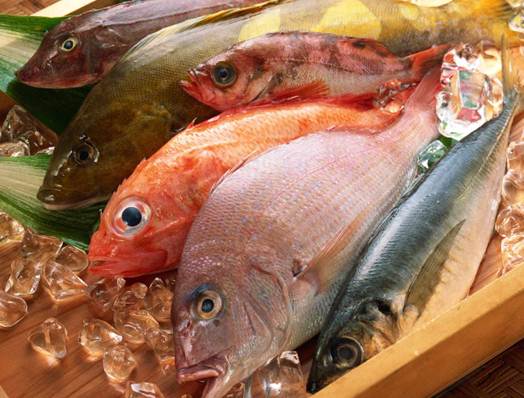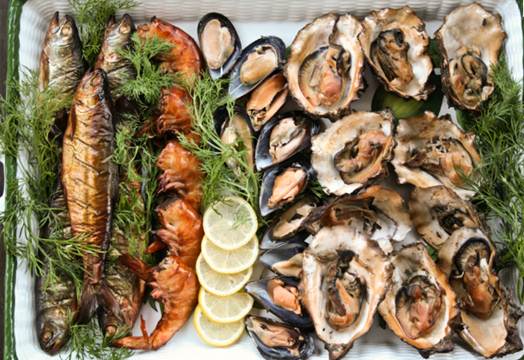Smart choices for you, your baby and
the planet
Of all the food dilemmas you face when
pregnant, seafood might be the most slippery. Fish contain nutrients essential
to the developing fetal brain, but they can also be contaminated with brain-damaging
mercury and polychlorinated biphenyls (PCBs). The ecological questions are
similarly confusing. Many wild fish are being fished to extinction, but fish
farms can be a major source of environmental destruction as well.

Smart
choices for you, your baby and the planet
All in all, it’s enough to make you throw
up your hands and order a cheeseburger. In fact, more than half of all pregnant
women eat fish less often than they should because they’re afraid of harming
their babies.
But don’t skip fish. With so many
environmental problems to solve, the next generation will need the brainpower
that fish provide. Omega-3 fatty acids in many varieties of seafood not only
promote fetal brain and nervous system development, they contribute to a
healthy pregnancy by lowering the risk of preeclampsia, low birth weight and
preterm birth. Mothers who eat foods rich in omega-3s continue to boost their
babies’ neurological development while nursing, and are less likely to suffer
postpartum depression.
Our Paleolithic ancestors got plenty of
omega-3s by eating wild game; today, the best source is cold-water fish.
Experts recommend that pregnant women eat 12 ounces of fish—about two
servings—per week. The question is, which fish? Here’s information on how to
get the necessary nutrients while protecting the health of your baby—and that
of the environment.
Seafood to savor
Certain fish, particularly large predators
at the top of the food chain, contain high levels of methyl- mercury, a potent
neurotoxin dispersed into the air by coal-fired power plants. Mercury is
particularly damaging to the developing brain, and studies have found that its
negative impacts can cancel out the brain-boosting powers of fish oil.

Seafood
Like omega-3s, mercury can pass to babies
through breast milk, as can PCBs, flame-retardant chemicals linked to
neurological damage and cancer. Though banned in 1979, PCBs persist in oceans
and waterways and accumulate in the bodies of certain fish.
Some of the fish that are the worst for
your health are also endangered; leave them be, and you do your body, your baby
and the oceans a favor. At the top of that list is tuna, the nation’s leading
food source of mercury. Overfishing of tuna is also a major cause of
environmental devastation. More than half of the world’s eight tuna species
are at risk of extinction, and the global tuna industry kills thousands of tons
of untargeted marine life as by catch each year.
Five other overfished and contaminated
species to banish from your plate are shark, Atlantic salmon, Chilean sea bass,
orange roughy and swordfish.